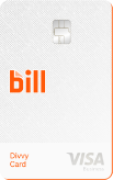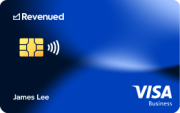The content on this page is accurate as of the posting date; however, some of the offers mentioned may have expired.

Nobody ever said running a small business was easy.
In fact, at some point every small business flirts with financial disaster. Even mighty Coca-Cola isn't immune to that. In the company's first year of business, total sales volume was a whopping $55.00.
So how do you minimize your small shop's exposure to financial hardship - especially in a competitive business environment where money is tight?
There are options, and some are better than others. You could, for example, apply for a small business loan, fill out numerous forms and wait for a decision. But even the Small Business Administration is on a budget these days and not every business owner who applies is guaranteed to get a loan. Or you could do what Donald Trump and other successful business moguls do; use other people's money to finance and build businesses. A small business card may be the tool to help you do just that.
That option is a winner. Why? Because a small business credit card can do more than impress a prospective client with a power lunch. Using it wisely can help you manage your cash flow, track expenses and land discounts on a variety of products.
"Credit and charge cards are increasingly important tools to help manage cash flow," notes Susan Sobbott, president, OPEN from American Express. "By using them for company purchases, business owners can help streamline expense management reporting and benefit from the float time between paying their vendors and paying their card bills. They can also earn valuable savings and other rewards."
Apparently, Sobbott's sage advice for owners is not going unheeded. According to the 2004 Small Business Monitor survey, sponsored by American Express, many businesses will use credit and charge cards in 2005 and beyond. In fact, nearly four in five small business owners (78 percent) said they used charge or credit cards in 2004 to pay for business expenses, up from 73 percent in October 2003 and 74 percent in 2002. Among them, 31 percent will purchase computer equipment. The most common purchase using business credit or charge cards is travel (56 percent), followed by office supplies and entertainment (tied at 47 percent), wholesale purchases (42 percent) and business professional services (22 percent).
Business credit cards do have myriad advantages, including:
• Using a credit card to make large purchases frees up your cash flow.
• Purchasing items from around the globe is now as easy as heading down to the corner store.
• Tracking expenses with a monthly statement and using on-line bill pay make accounting a breeze. Most lenders will send you a year-end statement, which saves time during tax season. Some cards even come with financial software to help you manage your money.
• Credit cards help manage employee spending rather than fumbling with petty cash or reimbursement accounts. And, you can request additional cards with pre-set limits.
• Most cards offer reward and discount programs, including mileage points, travel insurance, and discounts on business services ranging from shipping to software solutions.
• Many lenders offer zero-percent interest rates and no annual fees. And business credit cards generally have higher limits than personal credit cards.
• A small business credit card can help you build good credit for larger bank loans as your business grows.
Benefits aside, small business owners looking to parlay their plastic into a rosier financial situation should do their homework before deciding on a card. Before you commit, consider the following issues:
• To qualify, your personal credit history should be outstanding. Keep in mind that your credit will be at risk and may be limited until you establish a separate and viable credit history for your company. Establishing business credit cards and lines of credit can help you accomplish just that. Until such time, if your business does go belly up, expect creditors to come after you and your personal assets.
• Keep in mind that large business debt can have a negative impact on your personal credit record, so use the credit wisely and within reason or you could end up worse off than when you started.
• Make payments on time to keep your credit score from being affected. If you pay late it will allow lenders to bump up that zero-percent interest rate. Pay off the card in full each month, if possible. A failure to do so can end up costing you more to use the credit than it is really worth.
• With a business credit card there is no real consumer protection if you need to dispute a billing error. Check first with each lender, as conditions will vary.
• Avoid using cash advance offers - the associated fees can add up quickly. Equally important, don't go overboard and be tempted to sign up for more cards than you need. When it comes to business credit cards, less is better than more.
Lenders are happy to help you grow your small business and the small business credit card industry represents almost a billion dollar share of the market. Fact is, you won't be alone when using a card for business purposes, given that two-thirds of small companies report using credit cards for expenses.
Start with your current bank if you already have good credit there. Be honest when providing credit or business information as falsifying records can hurt your position if the lender finds out - and they always find out.
You'll also want to be sure to compare other lenders interest rates, spending limits, fees and terms, as there are many differences. For example, some cards offer 21-day grace periods for payments, while others offer anywhere from 25 to 30 days - a big difference when it comes to managing your cash flows.
Also make sure to compare perks such as travel, hotel and car rental discounts, and travel insurance. Think about which reward and discount programs will be most useful to you and your business needs, whether it's discounts on office supplies, computer software or equipment.
In the long run you'll want to separate your business credit card from your personal finances to avoid tax complications and safeguard your personal assets. Start by registering with Dun and Bradstreet (www.dnb.com) or Credit.net, the major business credit bureaus. These agencies track business credit history and can help you establish a strong business credit score, eventually allowing you to separate your business credit from your personal credit record. If you have specific questions always check with a business financial planner or a business attorney.
Bottom line, if used wisely, business credit can enhance your company image, allowing your small business to take on larger, more lucrative projects and grow to Trump-like proportions.







